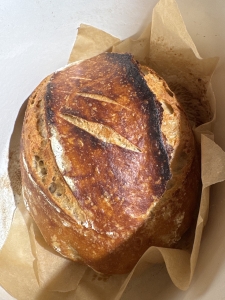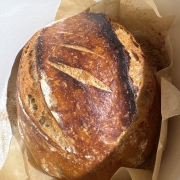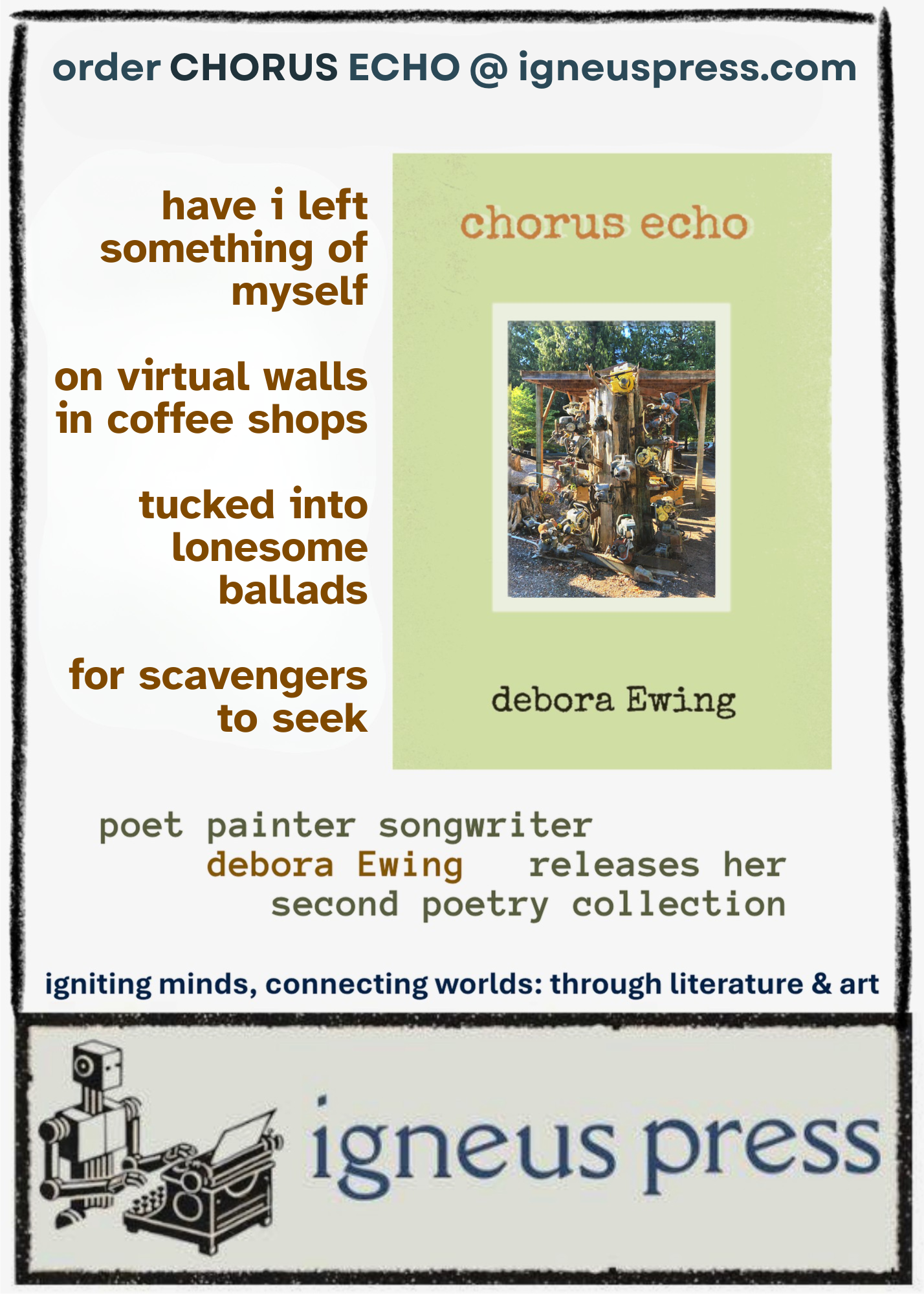Hungry Music
Songs of hunger and survival
Number 4 - November 2025

Who won’t go hungry? The question becomes closer and closer again. I think we’re all in line to wonder, just now. During Irish famine times, from 1843-47, there was local Sligo legend called The Hungry Rock. The story goes that whoever was able to throw a smaller stone up to land exactly balanced atop the nearly spherical “Hungry Rock,” they wouldn’t go hungry. On the one hand, it’s a way for the young folk to pass the time, and on the other, the practice acknowledges the Sisyphean futility of trying literally anything to stave off politically-motivated starvation at the hands of colonial oppressors and their representatives. People have always found ways to feed their minds and imaginations in times of stress, even if they only find the wherewithal to make art and music about them later. Is alann maith e an t-ordras, which means “Hunger makes the best flavor / sauce.” So while bellies remained empty, the dreaming continued, and it’s always been that way with colonized people. When the physical safety nets fail and there’s no food, people find additional ways to keep their hearts going as long as possible.
Just now in American life, so too will millions of Americans join others in the rest of the world and experience lack as we haven’t collectively on broad scales, for a long time. We may as well get used to saying. Tá ocras orm, “I have a hunger upon me”… and so will millions of Americans in the largest and richest economy in the world, soon. But we have something, the creative spark still. And while we lack the bread, we have the roses of music, and a rebellious spirit, still. So give me “bread for all, but roses too” – Helen Todd.
A spark that dwindles and gutters when people are too scared and weak continues somewhere fed by “roses”, hope, music, and beauty. An Gorta Mór is the Irish term for the political famine of the 1840s, “The Great Hunger,” in which crop failure that led to agricultural collapse was only half the story, and from that time, there was a 15 year period in which no songs were composed but somewhere in there, the coals lay dormant. A people so traumatized and shaken by survival, that the tunes came only out of the escape of the hardship, as in America, or Australia, but not in it during the worst. And then, there was plenty to sing about.
There were of course songs written after the fact, to give voice to the deep gnawing, ache of grief, and heartbreak, of loss, and hope, still, about the wordless experiences of the people, so now, in the age of technology, and political weaponization for profit, Millions of people scurry to make music before we stumble off a sort of cliff, a sort of mad need to drive our survival into the language of music, and connection. I think we’re ready for it. We have the examples of endurance in our forbears, whose songs, thanks to recorded media and annotation, we still have record of. And as we as a collective people in the United States, brace for punishment for being poor, and needing help, old songs about food and hunger rise to our minds. In the season of the fall harvest, and the storage closets of our minds, of our richest supplies, ferment into apple Jack or Johnny Jump Up by Gaelic Storm. Numbing the grief if the food can only be preserved through the process of a cider press.
They call us back to times of plenty, and dissociation, and fantasy, and survival through dreaming. Or they focus on the nostalgia of our parents and grandparents recollections of seasonal survival practices… and we get Colcannon, the last of the harvested fresh root vegetables, cabbages, salted cream, and butter. So at Samhain-time (halloween), we see again an emphasis on preparing for the darkness, and the knowledge that food and life, and fresh food, and fruits come again. Here’s the Black Family celebrating and Irish Autumnal traditional dish, that many Americans, in a land of resource and surplus, that got to become associated with whole new seasons, and ways of celebrating in the form of a clichéd Corned-beef and cabbage which then shifted in American consciousness as a St. Patrick’s day throw-back to the “dear old Ireland” of their parents’ generation.
And so now let’s dream a bit… of when politicians might be with their constituents in solidarity, and largesse and understood their obligations to the people, and one another. And fantasize about the variety, enormity, and generosity of a mythical feast, The Irish Jubilee written by Chas Lawlor 1800 and sung by Barry Gleeson:
And you start to see where people begin to imagine all the things they can think of that might be present at a party hosted by a politician courting the favor of the people around him. The humor of the song, deeply apparent as we run through absurdity of such an affair. Decades later, we begin again to see largesse, and plenty spring the pendulum around again and be ridiculed all while twigging to our mammal brain, memories, of ancestral void. Our mitochondrial DNA, remembers a deeply malnourished grandparent, in times of famine, and the great depression, we see, “One Meatball,” sung by Josh White, composed by Hy Zaret and Lou Singer:
Again, bringing us back to the conflict of potential starvation at the hands of politicians and capitalists versus what the land can do while we have the resources and supplies to feed more than everybody, and our collective voices are still choosing dumpsters and profit over people who need food.
From every inch of the world, Central and South America, North Africa, and SE Asia, the land gives us “pastures of plenty,” and we’re told to struggle for scraps of food, of the poor nutritional value of corporate songs, and we aren’t fed. Sung by Odetta and composed by Woody Guthrie, the song shares the story of the impact of politicians on our very food supply as well of the tension of food production vs. profit:
Our bodies retain metabolic traces of preservation where they haven’t been as important of late. And, when we need the information of how to survive, though our bones still know, and our songs in the folk tradition still carry the memories within them we can’t look to AI to nourish our spirits. The results of what they distill out of our most important convention bucking messages won’t challenge or subvert anything status quo. and the status is definitely not quo.
Songs emphasizing absurdist humor is funny as a satire of the hyperobviousness of the question, on its own merits. It’s so obvious, there’s a reason it’s unspoken. No other songs exist to direct us to do it, because, it’s a fact of being a biological entity. We often think directing us to our most basic physical needs wouldn’t require additional art about it. Of course people eat. Food is so plentiful planet-wide, So how did we members of the species, decide to have disordered relationships to food?
|
Likely the same mechanisms of control and propagandist messaging which devalues our physical selves at our collective and communal expense, for political points. And food ties us, so when we don’t share in it, or deny those needs, we’ve removed one additional point of connection with our fellow animal life-forms and our own life-forces. Our own lives become easier to snuff out when we’ve lost both hope and tangible connection or physical grounding. And so, we sing the absurdities, we sing of hardships long after the fact, and we sing of belonging. We sing as another form of survival, and we don’t question its place across cultures. We all know, that there’s food that ties us and roots us and links us.
On the other hand the foods that connect us include a basic grain form in any way we can make it, so we get things like, Mississippi John Hurt’s rendition of Short’nin’ Bread:
The song is a sort of balm for the soul, now that we’ve established that we not only get to but must. in which the singer extolls the virtues of sharing in a favorite meal with beloved family, again, emphasizing the duality of the beauty of music to feed our hearts, and solidarity of sharing, a catchy sing-alongable chorus AND the shortnin’ bread. The nurturance of the literal shortnin’ bread to carry our humanity on. Won’t you make some, or if you can’t make it, won’t you come on over and have some with us all in the lean times ahead?
Amelia Hogan is a San Francisco-based singer of traditional and contemporary Celtic Folk music with three folk-chart-topping solo projects, and numerous collaborative works. With her haunting, honey-toned voice, she tells the stories of songs from the Irish, Scottish, British, and American song traditions. Her performances are both in the Irish music tradition of Sean-Nós, or “old style,” a highly lyrical a cappella tradition, and also with accompaniment. She is the podcast host of “MixedMedia_Talks”, recently joined the Folkworks writing staff, and is also a painter and mixed media artist. Amelia fosters a deep love of community building in music education, and is committed to sharing how music can inspire spirituality and how spirituality moves people to make music. She can be found on Facebook, Instagram, and at www.ameliahogan.com, or in her San Francisco neighborhood with her husband and ghost-cat, sipping excellent tea.
Hungry Music
Songs of hunger and survival
Number 4 - November 2025







